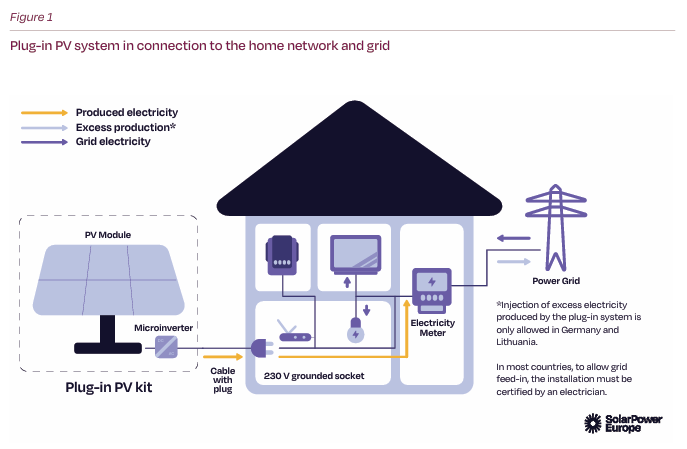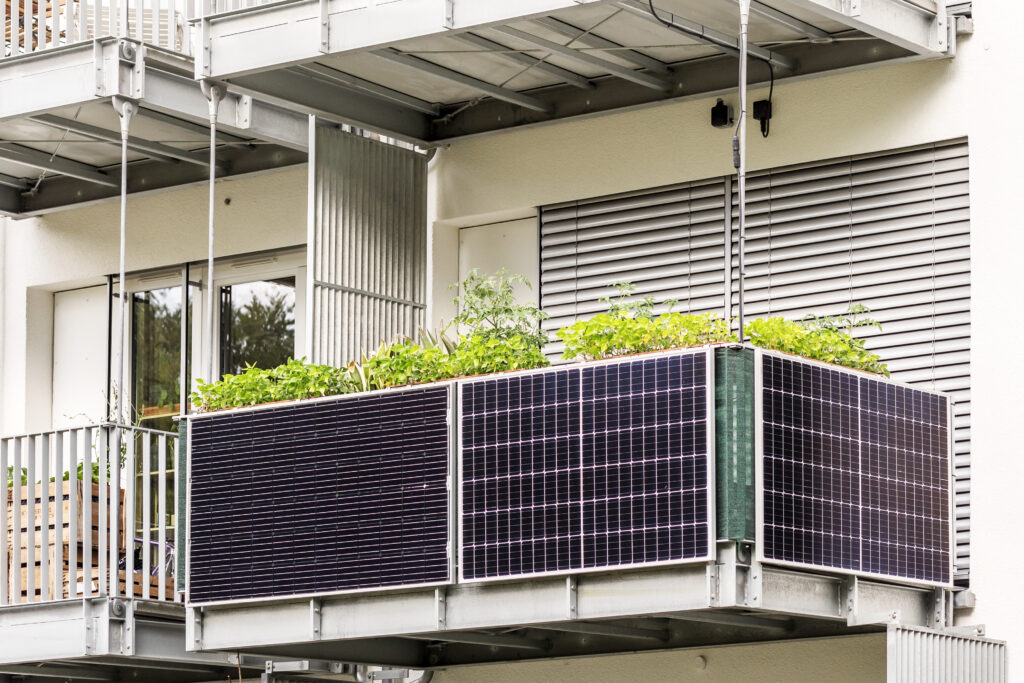Plug-in solar photovoltaic (PV) systems are growing in popularity across Europe, with the potential to cover up to 25% of a household’s annual electricity needs. SolarPower Europe, Europe’s leading solar energy association, of which RES Serbia is a member, has published its first comprehensive report exploring key trends, regulatory frameworks and best practices for the implementation of these technologies in the European Union.
– As regulations are constantly evolving, it is extremely important that standardization and clear installation guidelines become the foundation for ensuring the safe, efficient and sustainable deployment of these technologies – they said.

The potential of plug-in solar photovoltaic systems reaches up to 25% of a household’s electricity needs
Plug-in solar photovoltaic (PV) products are gaining momentum across Europe as households seek to all avenues to produce their own solar electricity. The solution consists of usually one or two solar PV modules, which can be plugged into a grounded home power socket. A common type of plug-in solar PV is ‘balcony solar’. According to SolarPower Europe, in some markets in Europe, these systems can cover up to 25% of a household’s annual electricity needs.
– This first-of-a-kind report provides an in-depth analysis of the growth, opportunities, challenges, and regulatory landscape of the quickly expanding plug-in solar PV segment in Europe – emphasized Michael Schmela, Director Market Intelligence in SolarPower Europe.

Germany is the leading market for plug-in PV systems in Europe, and this use of solar energy is expected to grow in the rest of the EU
Plug-in PV market is growing in Europe, although exact numbers are difficult to reveal. Germany leads the way with more than 780,000 registered plug-in PV systems registered by the end of 2024. SolarPower Europe suggests that up to 4 million systems could be in use in Germany, many of which are unregistered.

The European Union and national governments are increasingly recognizing the potential of plug-in solar energy, with new policies emerging to match market realities. Belgium is expected to legalize plug-in solar power in April 2025, while Germany has taken major steps to simplify grid registration for plug-in solar power.
You can read the full report below:


